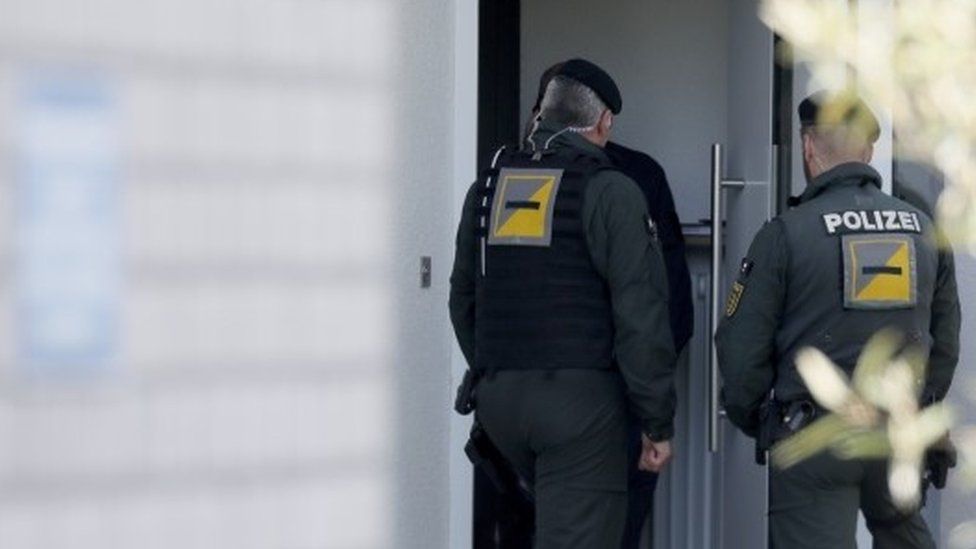Borussia Dortmund bombs: 'Speculator' charged with bus attack
- Published

Police in Germany have charged a man suspected of being behind an attack on the Borussia Dortmund team bus.
Rather than having links to radical Islamism, he was a market trader hoping to make money if the price of shares in the team fell, prosecutors say.
The suspect has been charged with attempted murder, triggering explosions and causing serious physical injury.
He has been identified only as Sergej W, and was staying in the team's hotel overlooking the scene of the attack.
Two people needed medical help after three bombs exploded near the bus.
Spanish footballer Marc Bartra underwent wrist surgery and a police officer was treated for shock.
Following the attack on 11 April, Borussia Dortmund's home Champions League match against Monaco was rescheduled a day later, which led Dortmund fans to open their doors to stranded away supporters.
Police initially treated the blast as a terrorist attack.
However, the following week, investigators cast "significant doubt" on jihadist motivations being behind it.
They now say the attack was in fact motivated by financial greed.
Sergej W, 28, would have made about €3.9m euros ($4.2m; £3.2m) from his actions, Germany's Bild newspaper reported.
In a statement on Friday (in German), the German federal prosecutor's office said he has German and Russian nationality.
He was arrested on Friday near Tubingen in Rottenburg, south-west Germany.
The suspect had allegedly bought 15,000 put options on Borussia Dortmund shares - reportedly priced at €78,000 (£65,000; $83,600) - betting that they would drop sharply after the attack.
He would have made large profits if the team's share price collapsed.
Experts have likened the alleged plot to a sophisticated form of insider trading - because he tried to use information not widely available to the public to make money quickly.
He was staying at the team's L'Arrivée hotel in Dortmund on the day of the attack and had moved to a room on the top floor, overlooking the street where it took place, prosecutors say.
The suspect placed the bet on 11 April using an IP address traced to the hotel, after taking out a loan for the money.
What are put options?
- A put option on a share or other asset is a contract, which allows an investor to sell the asset at an agreed price, on an agreed day in the future
- If the market price falls before then, the investor can then buy the asset more cheaply on the open market and sell it at the higher, option price to whoever sold the option. The investor pockets the price difference
Investigators believe three explosive devices packed with metal pins were hidden in a hedge and set off as the bus passed.
The bus was damaged about six miles from the Westfalenstadion - officially called Signal Iduna Park - in Dortmund about 90 minutes before kick-off.
Pictures from the scene showed its windows broken and its tyres burst.
- Published14 April 2017
- Published13 April 2017
- Published12 April 2017
- Published12 April 2017
- Published11 April 2017